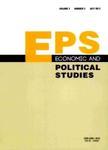Can ChatGPT reduce human financial analysts’optimistic biases?
作者机构:School of Accounting and FinanceThe Hong Kong Polytechnic UniversityHong Kong SARChina School of FinanceRenmin University of ChinaBeijingChina Department of Banking and FinanceUniversity of ZurichZurichSwitzerland Swiss Finance InstituteZurichSwitzerland
出 版 物:《Economic and Political Studies》 (经济与政治研究(英文版))
年 卷 期:2024年第12卷第1期
页 面:20-33页
学科分类:082304[工学-载运工具运用工程] 08[工学] 080204[工学-车辆工程] 0802[工学-机械工程] 0823[工学-交通运输工程]
基 金:Haoming Feng thanks the National Social Science Foundation of China for financial support[Grant No.20ZDA053] Xiaoyang Li thanks the National Natural Science Foundation of China for financial support[Grant No.72303197] Jiyuan Huang thanks the Swiss National Science Foundation(SNSF)for financial support through the project‘Trading and Financing during Market Stress’[Grant No.100018_172679]
主 题:ChatGPT large language models analyst forecast optimistic biases human–machine interaction
摘 要:This paper examines the potential of ChatGPT,a large language model,as a financial advisor for listed firm performance *** focus on the constituent stocks of the China Securities Index 300 and compare ChatGPT’s forecasts for major financial performance measures with human analysts’forecasts and the realised *** findings suggest that ChatGPT can correct the optimistic biases of human *** study contributes to the literature by exploring the potential of ChatGPT as a financial advisor and demonstrating its role in reducing human biases in financial decision-making.



